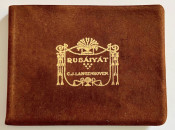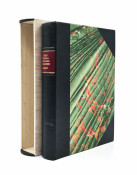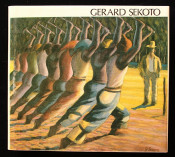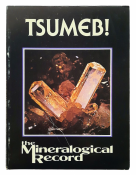Reprinted with corrections and additions from "The Scotsman".
1857, EDINBURGH: Scotsman Office, 257 High Street. 18mo., 10.5cm x 16.5cm, 347 pp of trial plus 60pp of letters. Half red leather with marbled boards; titles in gilt to spine on black ground.
Account of trial, 9 days in all (347 pp) followed by:
Letters of Miss Madeleine Smith to the late Pierre Emile L’Angelier, including those suppressed in court. (New York: Printed at the Astor Steam-Printing-Press. Price 50 cents)
Madeleine Hamilton Smith (29 March 1835 – 28 April 1928) was a 19th-century Glasgow socialite who was the defendant in a sensational murder trial in Scotland in 1857. Smith broke the strict Victorian conventions of the time when, as a young woman in early 1855, she began a secret love affair with Pierre Emile L'Angelier, an apprentice nurseryman who originally came from the Channel Islands. The two met late at night at Smith's bedroom window and also engaged in voluminous correspondence. During one of their infrequent meetings alone, she lost her virginity to L'Angelier. Smith's parents, unaware of the affair with L'Angelier (whom Smith had promised to marry) found a suitable fiancé for her within the Glasgow upper-middle class — William Harper Minnoch. Smith attempted to break her connection with L'Angelier and, in February 1857, asked him to return the letters she had written to him. Instead, L'Angelier threatened to use the letters to expose her and force her to marry him. She was soon observed in a druggist's office, ordering arsenic, and signed in as M.H. Smith. Early in the morning of 23 March 1857, L'Angelier died from arsenic poisoning. After Smith's numerous letters were found in his lodging house, she was arrested and charged with murder. Although the circumstantial evidence pointed towards her guilt (Smith had made purchases of arsenic in the weeks leading up to L'Angelier's death, and had a clear motive), the jury returned a verdict "not proven", i.e. the jury was unconvinced that Smith was innocent, but the prosecution had produced insufficient evidence to the contrary. Crucial to the case was the chronology of certain letters from Smith to l'Angelier, and as the letters themselves were undated, the case hinged to some extent on the envelopes. One letter in particular depended on the correct interpretation of the date of the postmark which was unfortunately illegible, and attracted some caustic comments from the judge; but the vast majority of these postmarks were quite clearly struck. It transpired that when the police searched L'Angelier's room, many of Smith's letters were found without their envelopes and were then hurriedly collected and stuck into whichever envelopes came to hand. As in the case of Lizzie Borden, scholars and amateur criminologists have spent decades going over the minutiae of the case. Most modern scholars believe that Smith committed the crime and the only thing that saved her from the noose was the fact that no eyewitness could prove that Smith and l'Angellier had met in the weeks before his death.
Smith's story was the basis for several plays and the 1950 film Madeleine, directed by David Lean. Jack House's 1961 book Square Mile of Murder, which contained a section on Smith, formed the basis for a BBC television version in 1980. A television play based upon the case, "Killer In Close-Up: The Trial Of Madeleine Smith", written by George F. Kerr, was also produced by Sydney television station ABN-2, airing on August 13, 1958. The case was an inspiration for Wilkie Collins' 1875 novel The Law and the Lady, though the only main similar feature being the problem of the "not proven" verdict and arsenic poisoning as a means for murder. Other novels based on the case include The House in Queen Anne's Square (1920) by William Darling Lyell, Letty Lynton (1931) by Marie Belloc Lowndes, Lovers All Untrue (1970) by Norah Lofts, and Alas, for Her That Met Me! (1976) by Mary Ann Ashe (pseudonym of Christianna Brand).
Condition” Binding tight, but part of half of spine missing. Front cover entirely loose and cover scuffed. Endpapers slightly stained, some slight staining and age-toning throughout; otherwise pages clean. A name and the date 1883 in ink on front end papers; a pencil mark on rear end papers. Fair.
Please note this book will be posted from the UK.
- Binding Condition: Poor
- Overall Condition: Fair +
- Size: 10.5cm x 16.5cm
- Sold By: The Smokey Owl
- Contact Person: Carol Hayman
- Country: South Africa
- Email: [email protected]
- Telephone: +27827793318
- Preferred Payment Methods: Electronic Transfers, PayPal
- Trade Associations: AA Approved

Similar lots in the current auction View all
Click on an item to view more details and to bid.





















